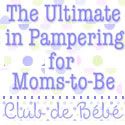by Katie Rose
Breastfeeding can be confusing the first time a new mother attempts it. Although it is one of the most natural things in the world and many mothers feel like they should be born knowing how to effectively nurse a child at the breast, it can be hard to know exactly what to do or how to do it. Here are some essential breastfeeding tips to discuss with your doctor or midwife.
Put the baby to the breast as early as possible - It is good to have your first breastfeeding session within an hour after giving birth, if possible. This is the time that the baby is alert after the activity and work of being born and the sucking instinct is strong. You will not be producing milk this early but your breasts contain colostrum, which is a thin milky fluid that contains important antibodies to disease. It is a perfect first food for your new sweetheart.
Offer frequent feedings - It is a good idea to try nursing your baby every two to three hours. This can help keep your breasts soft and aid in the prevention of engorgement. Pay close attention to your baby for signs of hunger - changes in facial expressions, sucking sounds or lip movements are usually good clues that he is getting hungry. By keeping an eye out for these signs you can learn the cues to help anticipate your baby’s hunger so you can start nursing before he is too hungry. A hungry baby can be too impatient to latch on correctly and if your breasts are engorged from waiting too long between feedings you may be sensitive to his touch. Breastfeeding on cue will actually help stimulate your breasts to produce more milk - the breasts make more milk based on the stimulation received by breastfeeding. Carrying your baby in a baby sling can help foster more frequent and convenient feeding as well as give a wonderful closeness for both mom and baby.
Practice good positioning - Having the right positioning for breastfeeding is one of the most important aspects in avoiding nipple soreness. You should use your hand to support the infant’s neck. His mouth should be open wide with the lips puckered out, not folded in. Your nipple should go back as far into his or her mouth as possible. Many hospitals provide lactation consultants to mothers who choose to breast feed. If you do not take advantage of this in the hospital, or need a refresher once you get home, you can get help finding proper positioning by asking a nurse, midwife, lactation consultant or other experienced mother for some help breastfeeding. La Leche League is a nationwide network for breastfeeding support and is in many communities.
Nipple relief - Some women get sore nipples when they first begin breastfeeding and others have no problems at all. Most of the times the discomfort can be remedied by better positioning. If your nipples start to become very sore try this - after each time you nurse, rub a small amount of breast milk on and around each nipple and allow it to air dry. This can help prevent cracking (which can lead to infection). In cases where your nipples do crack, coat them with breast milk, vitamin E oil, or lanolin to help them heal. The lanolins sold for breastfeeding are usually fine to leave on with no concerns for the baby at the next feeding - but be aware that some babies can have allergic reactions to certain moisturizing agents, so ask a doctor or lactation consultant what is best. Proper positioning is the number one factor in avoiding sore nipples.
Be on the lookout for breast infections - If you experience a fever or painful lumps and redness in your breasts, you should seek medical attention immediately. Abscesses can develop quickly and need medical treatment.
Postpone using artificial nipples - Some experts say that if you are going to be breastfeeding your baby you should avoid introducing pacifiers or other artificial nipples too early. Artificial nipples require the baby to use a different sucking action than human nipples do and may hinder breastfeeding efforts - often referred to as “nipple confusion.” It is usually best to try to wait until after about two weeks of successful breastfeeding before introducing any pacifier or bottles.
Supplements are not needed - Unless your doctor says otherwise, there is usually no need to supplement breastfeeding with sugar water or formula. Breast milk is made especially for babies and is a perfect source of nutrition - it is also full of helpful antibodies. Although there have been many advances in formulas, they do not have the same nutritional complexity of your breast milk and may interfere with the baby’s appetite for breastfeeding and lead to a diminished milk supply. If you worry that you are not making enough milk, breastfeeding your baby more often will cause you to produce more milk. If you think your baby is not getting enough to eat or is losing weight, consult your doctor for advice on whether supplementation is necessary and to ensure that there are no other problems.
Avoid engorgement - When breastfeeding first begins you will be producing a lot of milk. This can make you breasts large, swollen, hard and painful. You can help to ease this engorgement by breastfeeding frequently or expressing some milk with a hand pump or electric pump until your body adjusts to produce only as much as your baby needs. You can also help relieve the pain by applying warm, wet compresses or taking warm baths. Some over-the-counter pain relievers may help, but consult your doctor before taking any sort of drug, since it may be passed through your milk to the baby.
Stay healthy - A breastfeeding mom needs to eat a healthy diet in order to produce nutritional milk. Ask your doctor about increased calorie intake to ensure that both you and baby get all of the nutrition you need. Most likely you will need an extra 500 calories a day. It is very important to drink enough water and clear fluids when breastfeeding so you do not get dehydrated. Avoid drugs, alcohol, caffeine and smoke.
With support and persistence, breastfeeding can be a simple and pleasurable way to feed your child. Do not be afraid to ask for assistance from your doctor, nurse, lactation consultant or midwife - successful breastfeeding depends heavily on education and practice.
©2005 Katie Rose Kids Clothing Toys and Unique Keepsake Gifts
About the author:
Katie Rose is the owner of Katie Rose Kids at http://www.katierosekids.com - an online boutique for clothing, toys and unique gifts for preemies, infants, toddlers, preschoolers and moms too. They have Diaper Cakes, a very popular baby shower gift, as well as bath accessories, baby slings, books, decor, educational toys and personalized clothes, blankets and keepsake gifts.
Thursday, January 10, 2008
Breastfeeding Tips for New Mothers
Subscribe to:
Post Comments (Atom)





















0 comments:
Post a Comment